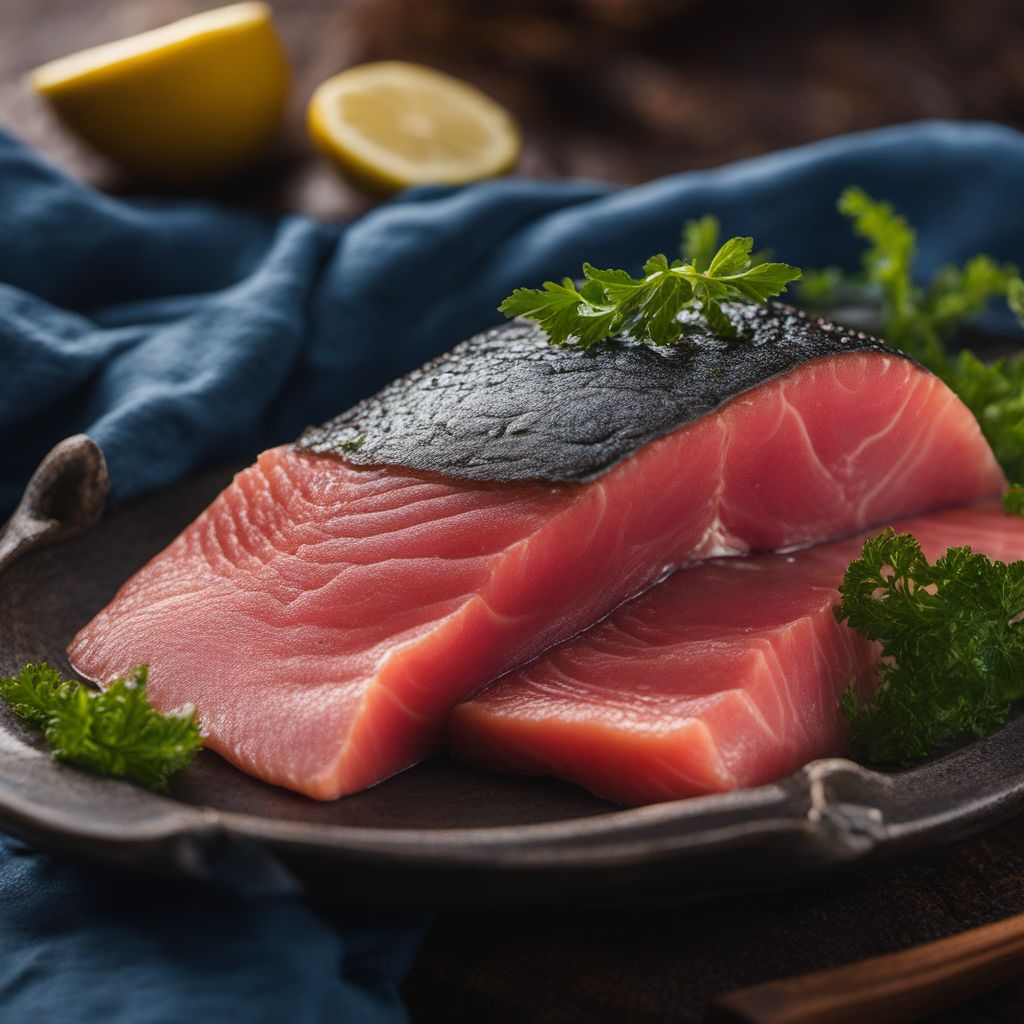
Ingredient
Southern bluefin tuna
The Jewel of the Ocean
Southern bluefin tuna is a large, migratory fish found in the southern hemisphere's oceans. It has a sleek, torpedo-shaped body with dark blue-black skin and a pinkish-white flesh. The meat is firm, succulent, and marbled with fat, giving it a buttery texture and a rich, umami flavor. It is often enjoyed raw in sashimi or sushi, but can also be grilled, seared, or used in various cooked dishes.
Origins and history
Southern bluefin tuna is native to the southern hemisphere, particularly the waters of Australia, New Zealand, and Japan. It has a long history of being highly valued in Japanese cuisine, where it is known as 'hon-maguro.' The demand for this prized fish has led to overfishing and a decline in its population, making it a rare and expensive delicacy.
Nutritional information
Southern bluefin tuna is a good source of high-quality protein, omega-3 fatty acids, and essential vitamins and minerals. It is low in saturated fat and calories, making it a healthy choice for seafood lovers. A 3-ounce serving of raw Southern bluefin tuna contains approximately 100 calories, 22 grams of protein, and 1 gram of fat.
Allergens
Some individuals may be allergic to fish, including Southern bluefin tuna. It is important to be cautious and consult with a healthcare professional if you have any known fish allergies.
How to select
When selecting Southern bluefin tuna, look for fish that has a vibrant, deep red color and a fresh, clean smell. The flesh should be firm to the touch and have a glossy appearance. Avoid fish that appears dull, discolored, or has a strong fishy odor.
Storage recommendations
To maintain the freshness and quality of Southern bluefin tuna, it is best to store it in the coldest part of your refrigerator, ideally between 30°F and 34°F (-1°C and 1°C). Keep the fish wrapped tightly in plastic wrap or place it in an airtight container to prevent exposure to air and moisture. Consume it within 1-2 days of purchase for optimal flavor and texture.
How to produce
Southern bluefin tuna is a wild-caught fish and cannot be easily produced or farmed. It requires specific oceanic conditions and a complex life cycle that makes it challenging to cultivate in captivity.
Preparation tips
Southern bluefin tuna is incredibly versatile and can be prepared in various ways. It is most commonly enjoyed raw in sashimi or sushi, where its delicate flavor and texture shine. It can also be grilled, seared, or used in dishes like poke bowls, ceviche, or tartare. The high fat content of the fish makes it ideal for preserving, such as in the form of cured tuna or canned tuna.
Culinary uses
Southern bluefin tuna is highly sought after in Japanese cuisine, where it is used in traditional dishes like sushi, sashimi, and donburi. It is also popular in Mediterranean and Asian cuisines, where it is often grilled or seared and served with flavorful sauces or marinades.
Availability
Southern bluefin tuna is primarily found in the waters of Australia, New Zealand, and Japan. It is also caught in smaller quantities in other southern hemisphere countries such as South Africa and Chile.
